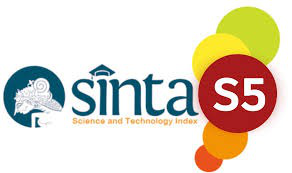- Focus and Scope
- Section Policies
- Peer Review Process
- Publication Frequency
- Open Access Policy
- Archiving
- Publication Ethics
- Plagiarism Check
- Copyright and License
Focus and Scope
Ethno-science is as an attempt "to recast what serves as science to others, their practice of taking care of themselves and their bodies, their botanical knowledge, but also the form of their classification, making connections, etc. Educational research is a systematic attempt to gain a better understanding of the educational process, with the aim of increasing its efficiency. This is done by applying the scientific method to studying educational problems. Ethno-science learning aims to reconstruct cultural knowledge and local wisdom. This learning process is very flexible and useful in combining basic and applied scientific research in education
The fields of Ethno-Sciences:
| The fields of Educational Research:
|
Section Policies
Articles
Peer Review Process
The submitted manuscript is first checked by an editor, whether it is suitable with our focus and scope, in two weeks. A editorial assistant will check whether the requirements are complete in one week. Authors will be given two weeks after notification is sent to complete the incomplete requirements. Every submitted manuscript which pass this step will be reviewed by two or three reviewers (double blind peer-review). At least one of the reviewer is appointed from other institutions. These manuscript will be sent to the reviewer anonymously. Reviewers comment are then sent to corresponding author to take the necessary actions and responses. The decision of the revised manuscript will be then evaluated in editorial board meeting, the final decision of whom are sent to the corresponding author. The accepted manuscript will be checked by copyeditor for language editing.
Publication Frequency
IJEER is published 4 (four) times a year (January, April, July and October).
Open Access Policy
This journal provides immediate open access to its content on the principle that making research freely available to the public supports a greater global exchange of knowledge.
Archiving
This journal utilizes the LOCKSS system to create a distributed archiving system among participating libraries and permits those libraries to create permanent archives of the journal for purposes of preservation and restoration. More...
Publication Ethics
International Journal of Ethno-Sciences and Education Research (IJEER) and is the flagship journal of the Research Collaboration Community (RCC), it is the aim of IJEER to present papers which cover the theory, practice, history or methodology of Ethno-Sciences and Education Research. However, since Ethno-Sciences and Education is primarily an applied science, it is a major objective of the journal to attract and publish accounts of good, practical case studies. Consequently, papers illustrating applications of OR to real problems are especially welcome. This statement of scientific code of ethics is a statement of code of ethics for all parties involved in the publication process of this scientific journal, namely the writer, editor, reviewer.
1. Standard for Authors
- Article standard, Authors must certify that their manuscripts are their original work. Plagiarism, Duplicate, Data Fabrication and Falsification, and Redundant Publications are forbidden.
- Authenticity and plagiarism, Authors must ensure that their work is fully original, and if the author has used the work and words of others who have been quoted or quoted correctly.
- Multiple publications, Author should not publish manuscripts that descriptively describe the same research in more than one journal or other publication. Sending the same text to more than one journal simultaneously is unethical and unacceptable publishing behavior.
- Fundamental mistake, when an author discovers a significant error or inaccuracy in his/her own published work, it is the author's obligation to promptly notify the Journal editor or publisher and cooperate with the editor to retract or correct the paper.
2. Standard for Editorial Board
- Confidentiality, editors and section editors are prohibited from providing any information about manuscripts sent to anyone other than writers, sustainable partners, the editorial board, and other publishers.
- Decision of Publication, journal editors are responsible for determining which articles are published. The editors can solicit input from the journal editorial board and available tools to deal with copyright infringement and plagiarism. The editors can discuss with other editors and reviewers to make this decision.
- Conflict of Interest, unpublished material written in the submitted text may not be used in the editor's own research without the written consent of the author.
- Manuscript Review, the editor must ensure that each manuscript is evaluated by the editor in relation to originality and uses peer reviewers that are appropriate for articles that are deemed to be published by selecting people with sufficient expertise.
3. Standard for Reviewers
- Confidentiality, every text received for review must be treated as a confidential document. They may not be shown to others except those authorized by the editor.
- Objectivity Standards, the review process must be carried out objectively. Personal criticism for writers is not right.
- Speed, every selected reviewer who feels ineligible to review the manuscript must notify the editor and resign from the review process
- Decision, Reviewers must bring to the attention of the Editor Board any information that may be a reason to reject publication of a manuscript.
- Disclosure and Conflict of Interest, Reviewers must notify IJEER of any conflicts of interest.
Plagiarism Check
International Journal of Ethno-Sciences and Education Research (IJEER) will not tolerate for any plagiarism. Therefore, Author should check their article through plagiarism checker application. For instance, turnitin.com application or other applications. If an article is indicated as a plagiary, it will be rejected and will not be reviewed.
Copyright and License
International Journal of Ethno-Sciences and Education Research (IJEER) is using CC-BY license as the optimal license for the publication, distribution, use, and reuse of scholarly work.
Authors retain copyright and grant the journal right of first publication with the work simultaneously. International Journal of Ethno-Sciences and Education Research (IJEER) is licensed under a Creative Commons Attribution 4.0 International.










